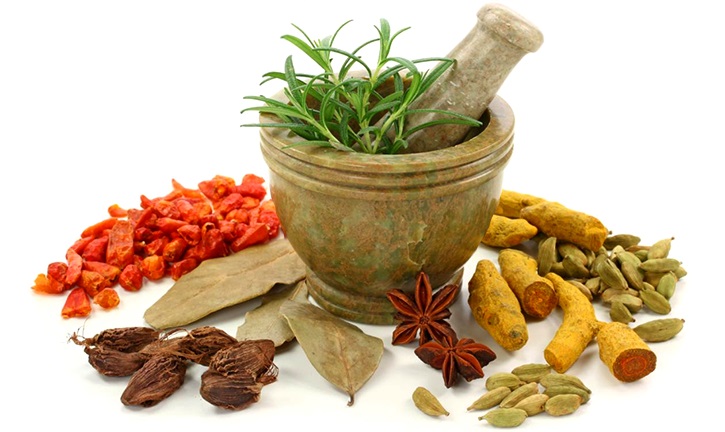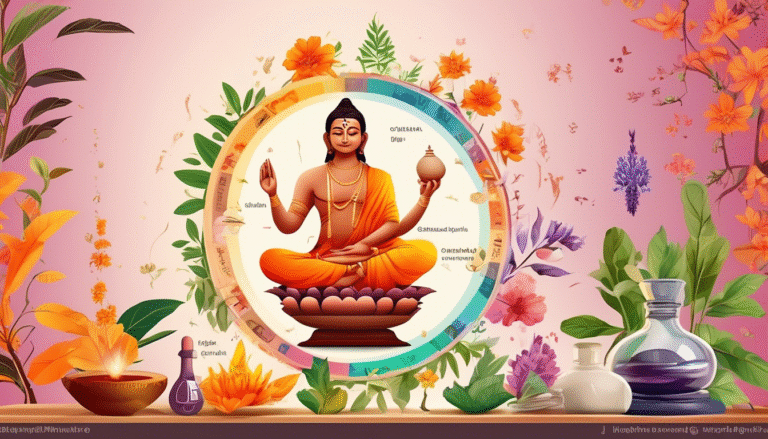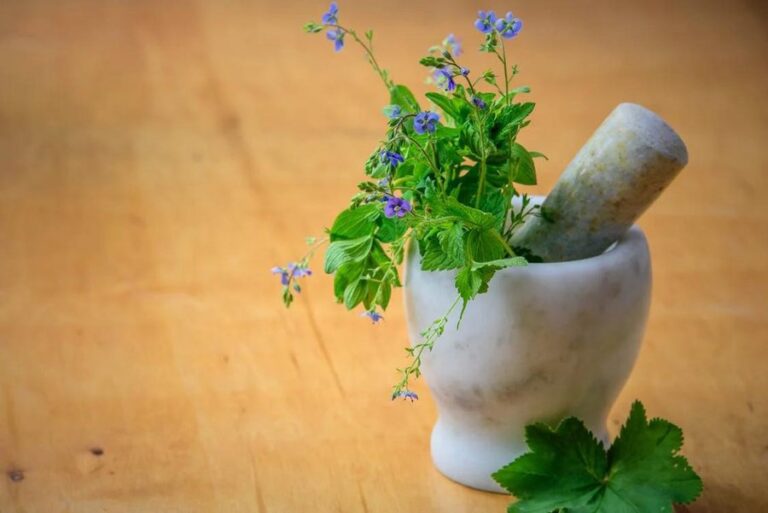Exploring Siddha Medicine: A Comprehensive Introduction to Its History and Origin in Tamil Nadu

Introduction to Siddha Medicine: History and Origin in Tamil Nadu
Siddha medicine is an ancient system of healing that finds its roots primarily in Tamil Nadu, India. As I began my journey into this fascinating world, I was struck by the rich tapestry of history, culture, and spirituality that intertwines within the practice. This traditional healing system is not just a collection of remedies; it represents a holistic approach to health that encompasses the physical, mental, and spiritual aspects of a person.
What makes Siddha medicine particularly captivating is its deep historical context. It is one of the oldest medical systems in the world, with texts dating back thousands of years. As I explored this field, I learned about its unique philosophies and treatments that have evolved over centuries. The primary focus is on achieving balance within the body, which is believed to contribute to overall well-being and longevity.
As we delve deeper into Siddha medicine throughout this article, I invite you to explore its historical context, origins, and the principles that guide this remarkable healing tradition.

Historical Context of Siddha Medicine in Tamil Nadu
The history of Siddha medicine can be traced back to the ancient Tamils, who lived in the southern regions of India. This system is believed to have been developed by Siddhars, who were revered sages and practitioners of alchemy and medicine. These Siddhars were not just healers; they were spiritual seekers who devoted their lives to attaining enlightenment and understanding the intricacies of life.
In Tamil Nadu, Siddha medicine flourished during the Sangam period, which lasted from around 300 BCE to 300 CE. This era was characterized by advancements in literature, art, and science. The Siddhars documented their knowledge in Tamil, creating a rich corpus of texts that outlined various treatments, herbal remedies, and philosophical principles. These writings served as the foundation for Siddha medicine, and the wisdom contained within them continues to guide practitioners today.
As I studied the evolution of Siddha medicine, I found it fascinating how various historical events, including invasions and colonization, influenced its practice. Despite these challenges, Siddha medicine has managed to endure and adapt, integrating new knowledge while preserving its core principles. The resilience of this system is a testament to its effectiveness and the dedication of those who practice it.
The Origins of Siddha Medicine: Myths and Facts
The origins of Siddha medicine are steeped in both mythology and historical fact, creating a rich narrative that captivates anyone interested in the healing arts. One of the most prominent myths is that of the Siddhars themselves, who are often portrayed as divine beings possessing extraordinary powers. According to legend, these Siddhars received their knowledge from higher realms and were able to heal ailments through spiritual practices and herbal medicines.
However, while these stories are enchanting, they also raise questions about the historical accuracy of Siddha medicine’s origins. As I delved deeper, I discovered that many Siddhars were indeed historical figures who contributed significantly to the field. For instance, Siddhar Agastya is considered one of the founding figures of Siddha medicine and is credited with numerous medicinal texts and practices. His teachings emphasize the importance of understanding the human body and the natural world.
In my exploration, I realized that while myths often serve to inspire and convey deeper truths, it is essential to balance them with factual historical context. Siddha medicine’s origins are a blend of reverence for tradition and the practical experiences of those who practiced it. This duality enriches the understanding of Siddha medicine, allowing us to appreciate its depth and diversity.
Key Principles and Practices of Siddha Medicine
At the core of Siddha medicine lie several key principles that distinguish it from other healing systems. One fundamental belief is the concept of “Siddha” itself, which translates to perfection or attainment. This term encapsulates the goal of Siddha medicine: to achieve a state of balance and harmony within oneself. I found this holistic approach refreshing, as it recognizes the interconnectedness of body, mind, and spirit.
Another crucial principle is the concept of the three humors, or “doshas,” which are Vata, Pitta, and Kapha. Each individual has a unique constitution based on these doshas, and maintaining their balance is essential for good health. During my exploration, I learned that Siddha practitioners assess a person’s dosha and tailor treatments accordingly. This personalized approach resonates with me, as it acknowledges that each person’s health journey is unique.
Practices in Siddha medicine include herbal remedies, yoga, meditation, and detoxification techniques such as “panchakarma.” I discovered that the use of natural herbs and minerals is central to treatment, with each ingredient meticulously selected for its therapeutic properties. Rituals and spiritual practices are also integral, reflecting the belief that healing involves not just the body, but also the mind and spirit.
Siddha Medicine vs. Other Traditional Medicines
As I compared Siddha medicine to other traditional healing systems, such as Ayurveda and Traditional Chinese Medicine (TCM), I noticed several similarities and differences. Like Ayurveda, Siddha medicine emphasizes balance and the interconnectedness of body and mind. However, Siddha tends to incorporate a more spiritual dimension, with its roots deeply embedded in Tamil culture and philosophy.
One notable difference is the approach to diagnosis and treatment. While Ayurveda often uses pulse diagnosis and body constitution analysis, Siddha practitioners may employ a combination of physical examination, pulse reading, and even astrology to determine an individual’s health status. This multifaceted approach intrigued me, as it highlights the cultural nuances that shape each practice.
Additionally, the herbal formulations in Siddha medicine often include a wider variety of minerals and metals than in Ayurveda or TCM. This unique aspect reflects the alchemical traditions of the Siddhars, who believed in the transformative properties of these substances. As I learned more, I appreciated how each system of traditional medicine offers valuable insights and practices, contributing to the rich tapestry of global healing traditions.
The Role of Siddha Medicine in Modern Healthcare
In recent years, there has been a growing interest in integrating traditional medicine, including Siddha, into modern healthcare systems. As I explored this trend, I was encouraged by the increasing recognition of the value that Siddha medicine brings to holistic health. Many modern practitioners are beginning to understand that combining conventional medicine with traditional approaches can enhance patient care and promote overall well-being.
One of the areas where Siddha medicine has gained traction is in the management of chronic diseases. As I researched various case studies, I found compelling evidence that Siddha treatments have shown promise in addressing conditions such as diabetes, arthritis, and respiratory disorders. The emphasis on lifestyle modifications, dietary changes, and natural remedies aligns well with contemporary approaches to preventive healthcare.
Furthermore, Siddha medicine offers a unique perspective on mental health, an area that is often overlooked in conventional medicine. Techniques such as meditation, yoga, and breathing exercises are integral to Siddha practice and can significantly contribute to mental wellness. I was particularly impressed by the emphasis on emotional balance and spiritual well-being, which resonates deeply in today’s fast-paced world where stress and anxiety are prevalent.
Prominent Siddha Remedies and Treatments
One of the most fascinating aspects of Siddha medicine is its extensive repertoire of remedies and treatments. As I explored this area, I discovered a plethora of herbal formulations, each designed to address specific health issues. Some of the most well-known remedies include:
- Thyroid Balancing: Using a combination of herbs such as Kanchanara and Guggulu, Siddha practitioners have developed treatments to help balance thyroid function.
- Digestive Health: Formulations like Sukku (dried ginger) and Pippali (long pepper) are commonly used to aid digestion and relieve gastrointestinal discomfort.
- Respiratory Conditions: Remedies such as Kanmaari (a herbal combination) are often prescribed for asthma and bronchitis, showcasing the natural ability of herbs to support respiratory health.
- Skin Disorders: Siddha medicine offers various treatments for skin ailments, utilizing ingredients like Neem and Turmeric, known for their antiseptic and anti-inflammatory properties.
- Stress Relief: Formulas incorporating Ashwagandha and Brahmi are popular for managing stress and enhancing mental clarity.
As I explored these remedies, I was amazed by the depth of knowledge that goes into each formulation. The meticulous selection of herbs, combined with the principles of Siddha philosophy, creates a comprehensive approach to healing that is as effective as it is holistic.
Challenges and Future of Siddha Medicine
Despite its rich history and proven efficacy, Siddha medicine faces several challenges in the modern context. One significant hurdle is the lack of standardized practices and regulations. As I learned, the diversity of treatments and formulations can lead to inconsistencies in practice, making it challenging for patients to find reliable care.
Another issue is the limited research and documentation available in comparison to more widely recognized systems like Ayurveda. This gap in scientific validation can hinder the acceptance of Siddha medicine within the broader healthcare community. I believe that increased collaboration between Siddha practitioners and researchers can help bridge this gap, paving the way for more evidence-based practices.
However, the future of Siddha medicine holds great promise. As we move towards a more integrative approach to healthcare, I am optimistic that traditional systems like Siddha will gain greater recognition. By promoting awareness, education, and research, we can ensure that the wisdom of Siddha medicine continues to thrive for generations to come.
How to Learn More About Siddha Medicine
For those interested in exploring Siddha medicine further, there are several avenues to consider. First, I recommend seeking out reputable practitioners who are well-versed in Siddha philosophy and treatments. Many clinics and wellness centers offer consultations, allowing you to gain insights tailored to your health needs.
Additionally, books and academic resources can provide a wealth of knowledge on Siddha medicine’s principles and practices. I found several texts that delve into the historical context, methods, and remedies of Siddha medicine, enriching my understanding of this ancient healing tradition.
Lastly, workshops and seminars can offer hands-on experience and foster a deeper connection with Siddha practices. Participating in yoga, meditation, and herbal workshops can provide valuable tools for personal well-being while connecting you with others interested in this holistic approach.
Conclusion: The Relevance of Siddha Medicine Today
As I conclude this exploration of Siddha medicine, I am reminded of its enduring relevance in today’s world. The holistic approach, emphasis on balance, and integration of spiritual practices offer valuable insights into achieving health and wellness. In our fast-paced, modern lives, the principles of Siddha medicine can serve as a guiding light, encouraging us to prioritize our physical, mental, and spiritual well-being.
Siddha medicine is not merely a relic of the past; it is a living tradition that continues to evolve and adapt to contemporary challenges. By recognizing its value and embracing its teachings, we can pave the way for a healthier future. I encourage everyone to explore this remarkable system of healing and consider its benefits in their health journey.
If you’re interested in learning more about Siddha remedies or seeking guidance tailored to your needs, I highly recommend visiting Priya Siddha Clinic. Their dedicated team offers safe and knowledgeable support, ensuring you receive the best care possible.Need Help with Siddha Remedies? Visit Priya Siddha Clinic Today – Safe Guidance Matters!





